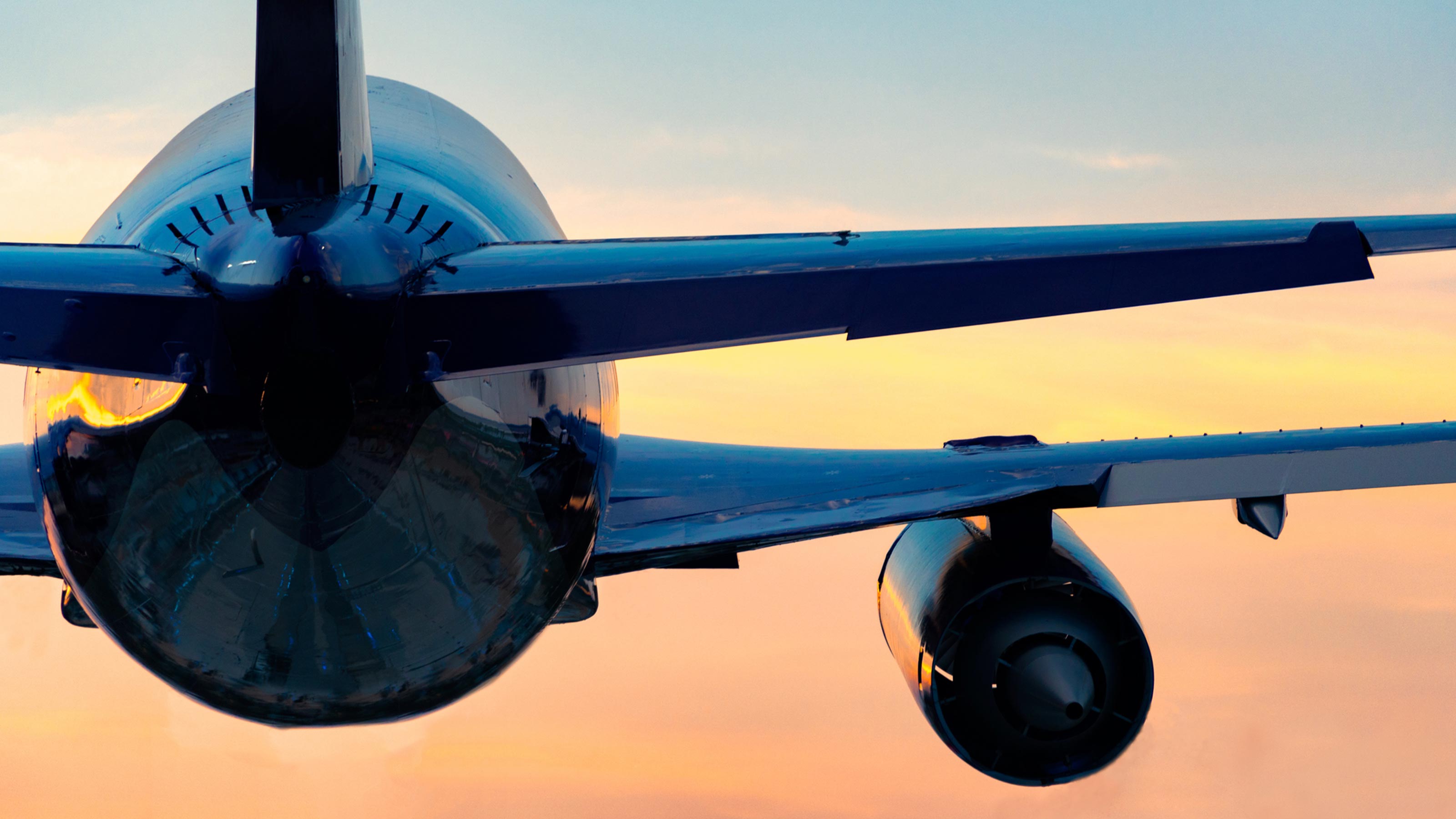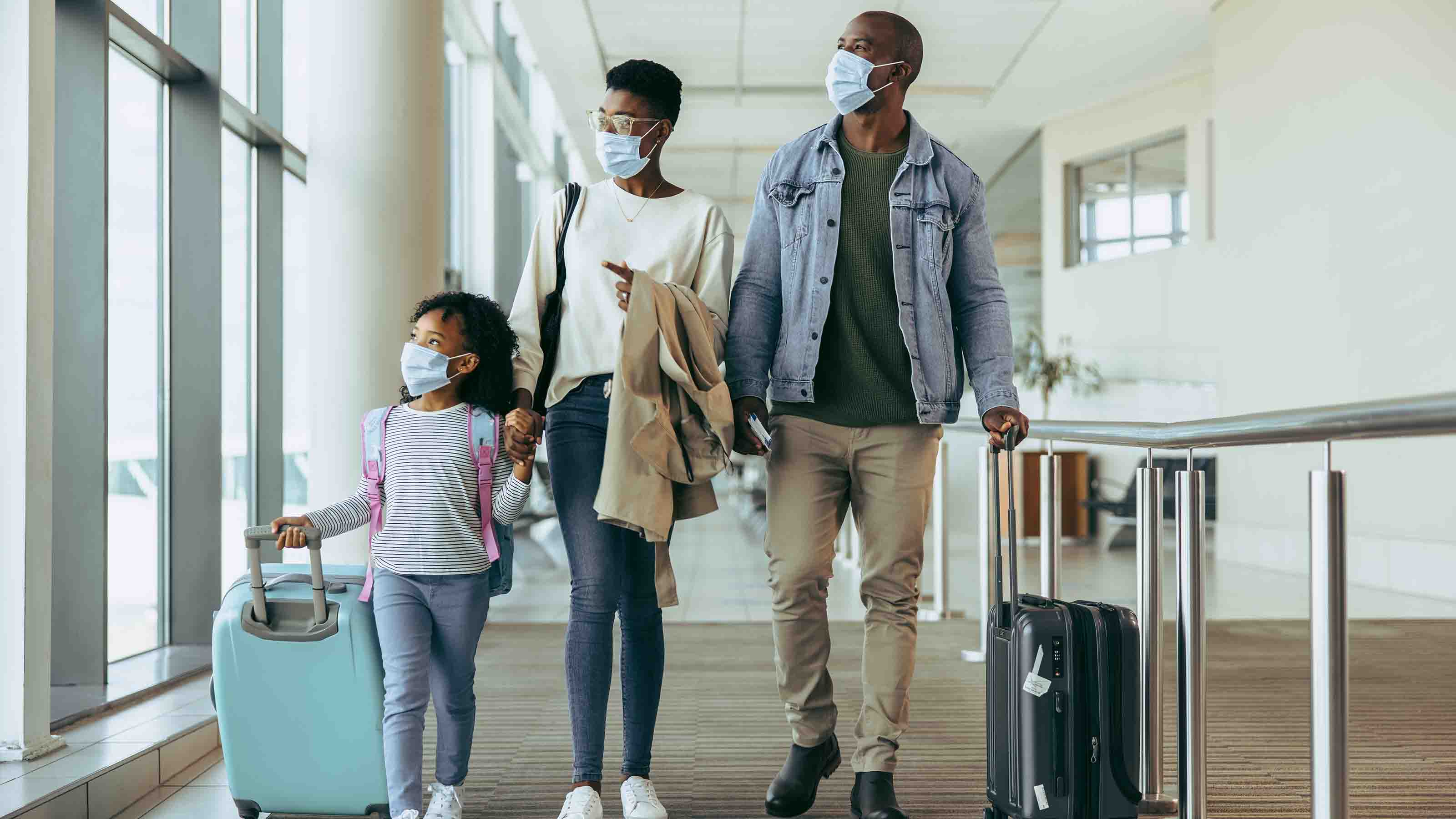Dodging Airline Fees the Hard Way
Our travel writer faced the ultimate challenge: Fly Spirit Airlines without paying a single fee.
Profit and prosper with the best of Kiplinger's advice on investing, taxes, retirement, personal finance and much more. Delivered daily. Enter your email in the box and click Sign Me Up.
You are now subscribed
Your newsletter sign-up was successful
Want to add more newsletters?

Delivered daily
Kiplinger Today
Profit and prosper with the best of Kiplinger's advice on investing, taxes, retirement, personal finance and much more delivered daily. Smart money moves start here.

Sent five days a week
Kiplinger A Step Ahead
Get practical help to make better financial decisions in your everyday life, from spending to savings on top deals.

Delivered daily
Kiplinger Closing Bell
Get today's biggest financial and investing headlines delivered to your inbox every day the U.S. stock market is open.

Sent twice a week
Kiplinger Adviser Intel
Financial pros across the country share best practices and fresh tactics to preserve and grow your wealth.

Delivered weekly
Kiplinger Tax Tips
Trim your federal and state tax bills with practical tax-planning and tax-cutting strategies.

Sent twice a week
Kiplinger Retirement Tips
Your twice-a-week guide to planning and enjoying a financially secure and richly rewarding retirement

Sent bimonthly.
Kiplinger Adviser Angle
Insights for advisers, wealth managers and other financial professionals.

Sent twice a week
Kiplinger Investing Weekly
Your twice-a-week roundup of promising stocks, funds, companies and industries you should consider, ones you should avoid, and why.

Sent weekly for six weeks
Kiplinger Invest for Retirement
Your step-by-step six-part series on how to invest for retirement, from devising a successful strategy to exactly which investments to choose.
Fees for everything from checked baggage to a few extra inches of legroom account for a generous portion of airline revenue. In 2013, U.S. airlines pulled in $3.4 billion, or 1.7% of total operating revenue, in baggage fees alone. But no airline levies fees with the same gusto as Spirit Airlines. In 2013, Spirit collected $276 million in baggage fees, or 17% of its total operating revenue, according to company data.
How does Spirit manage to collect ten times the industry average? After leading the way with a fee for checked bags in 2007, it began to charge for carry-on bags in 2010. Spirit’s fee-for-all doesn't end there: It also charges you to buy your ticket online, select a seat or order a soft drink in flight.
Other airlines are eyeing Spirit’s a la carte model. Frontier Airlines introduced similar fees last spring, including charges for carry-on bags and seat selection. Allegiant Air also makes you pay for both. Brett Snyder, of CrankyFlier.com, says the biggest U.S. airlines may follow suit, possibly charging for carry-on bags and seat assignments.
From just $107.88 $24.99 for Kiplinger Personal Finance
Become a smarter, better informed investor. Subscribe from just $107.88 $24.99, plus get up to 4 Special Issues

Sign up for Kiplinger’s Free Newsletters
Profit and prosper with the best of expert advice on investing, taxes, retirement, personal finance and more - straight to your e-mail.
Profit and prosper with the best of expert advice - straight to your e-mail.
The Spirit challenge
If Spirit’s barrage of fees is a harbinger of industry practices to come, do you have a fighting chance to avoid being nickel-and-dimed? To find out, I challenged myself to fly Spirit without paying a single avoidable fee.
I chose a round-trip from Baltimore (the nearest Spirit-served airport) to Fort Lauderdale, Fla. Base price: $178. The next-cheapest flight (on Delta) was $222. If I could avoid extra charges, I’d be $44 ahead.
First hurdle: When I was about to click to buy my ticket online, I noticed that I’d have to pay a “usage fee” of $34; to avoid it, I’d have to go to an airport ticket counter. So I took a commuter train from Kiplinger’s offices in downtown Washington, D.C., to BWI Airport. The train fare ran $12 round-trip. I was still ahead, but the two hours I spent getting to the airport and back was an annoyance—which might be exactly the reaction Spirit hopes for.
I prepared for my flight by researching options for bringing luggage on board without paying the $35 carry-on bag fee or the $30 checked-bag fee (those prices are $15 higher at the ticket counter). Dodging the carry-on fee is manageable if you can pack light, in a bag that fits below the seat in front of you. Any backpack or small roll-aboard would work, but you can also invest in a bag custom-made for Spirit flights. I borrowed one model, the CarryOn Free, an $80 bag designed to fit precisely under Spirit’s seats (personal items can be no larger than 16 inches by 14 inches by 12 inches). Another option, albeit a less-fashionable one, is a wearable suitcase (you wear it on the plane, but it converts to a duffle). Several Jaktogo designs, for example, recently sold for $70.
Skeptical gate agents had me measure my bag on the return flight. If it hadn’t been the right dimensions, I would have owed a $100 baggage fee. Once aboard, no one stopped me from stashing my bag in the overhead bin.
In order to avoid the fee for choosing a standard seat, I let Spirit select one for me. On the outbound flight, I landed an aisle seat in the second row from the back, where I had to withstand a parade of passengers heading to the restrooms. On the return flight, I was closer to the front but in the dreaded middle seat.
In the spirit of eschewing all fees, I satisfied my hunger pangs with trail mix purchased at my local grocery store, avoiding the $3 muffin-and-hot-drink combo and $7 glass of wine. Dodging the rest of the fees, many of which other airlines also charge, was no sweat. I didn’t change my flight itinerary ($115 online, $125 at the gate), fly standby ($25 each way for an earlier flight) or bring a pet on board ($100 per pet container).
How to fight back
Whether or not you’re flying Spirit, there are tricks to avoid fees. First, keep fees in mind when comparing fares from different carriers. On my flight, Spirit’s $34 online booking fee would have nearly wiped out my savings over the pricier Delta flight, and the $50 fee at the counter for a carry-on bag would have pushed the total $40 higher than Delta’s.
Check out the fee chart on Kayak at www.kayak.com/airline-fees, but double-check your airline’s Web site for any updates. To avoid baggage fees, fly Southwest (two free bags) or JetBlue (one free bag). Measure and weigh your bags before a trip to avoid a surprise overweight-luggage charge (at least $25 for bags that are more than 40 pounds and as high as $150 for bags that are longer than 80 inches).
Spirit at least acknowledges that its fees are unloved. It recently began trying to make its pricing model more palatable, renaming airfares “Bare Fares” and fees “Frill Control.” At least the nickel-and-diming has a cute name and Spirit fliers understand why it’s happening. And the airline’s carry-on bag fees have a silver lining: On my flights, very few passengers brought luggage aboard, and the boarding process was one of the fastest I’ve experienced in years.
Profit and prosper with the best of Kiplinger's advice on investing, taxes, retirement, personal finance and much more. Delivered daily. Enter your email in the box and click Sign Me Up.
Susannah Snider worked as a research-reporter and staff writer at Kiplinger Personal Finance Magazine. She went on to serve as managing editor for money at U.S. News, overseeing articles and content covering real estate, personal finance and careers. She is a certified financial planner professional and earned her CFP marks in 2019.
-
 5 Vince Lombardi Quotes Retirees Should Live By
5 Vince Lombardi Quotes Retirees Should Live ByThe iconic football coach's philosophy can help retirees win at the game of life.
-
 The $200,000 Olympic 'Pension' is a Retirement Game-Changer for Team USA
The $200,000 Olympic 'Pension' is a Retirement Game-Changer for Team USAThe donation by financier Ross Stevens is meant to be a "retirement program" for Team USA Olympic and Paralympic athletes.
-
 10 Cheapest Places to Live in Colorado
10 Cheapest Places to Live in ColoradoProperty Tax Looking for a cozy cabin near the slopes? These Colorado counties combine reasonable house prices with the state's lowest property tax bills.
-
 Five Ways to Save on Vacation Rental Properties
Five Ways to Save on Vacation Rental PropertiesTravel Use these strategies to pay less for an apartment, condo or house when you travel.
-
 How to Avoid Annoying Hotel Fees: Per Person, Parking and More
How to Avoid Annoying Hotel Fees: Per Person, Parking and MoreTravel Here's how to avoid extra charges and make sure you don't get stuck paying for amenities that you don't use.
-
 Despite Cancelled Flights and Short-Staffed Hotels, Americans Are (Sort of) Traveling Again
Despite Cancelled Flights and Short-Staffed Hotels, Americans Are (Sort of) Traveling AgainBusiness Travel Thanks to high gas prices, cancelled flights and labor shortages across the sector, the post-COVID travel recovery looks uneven.
-
 How to Appeal an Unexpected Medical Bill
How to Appeal an Unexpected Medical Billhealth insurance You may receive a bill because your insurance company denied a claim—but that doesn’t mean you have to pay it.
-
 Amazon Prime Fees Are Rising. Here’s How to Cancel Your Amazon Prime Membership
Amazon Prime Fees Are Rising. Here’s How to Cancel Your Amazon Prime MembershipFeature Amazon Prime will soon cost $139 a year, $180 for those who pay monthly. If you’re a subscriber, maybe it’s time to rethink your relationship. Here’s a step-by-step guide to canceling Prime.
-
 What to Expect from the 2022 Summer Travel Season
What to Expect from the 2022 Summer Travel SeasonTravel Travelers have been dealing with the trials and tribulations of canceled trips and elusive refunds for nearly two years. It will get better this year.
-
 A Life on the Road
A Life on the RoadBusiness Travel After working remotely for her corporate job, she quit to make a living pursuing her passions.
-
 Strategies for Working Remotely
Strategies for Working RemotelyBusiness Travel Globe-trotters should keep in mind that every country has different rules when it comes to working within their borders.